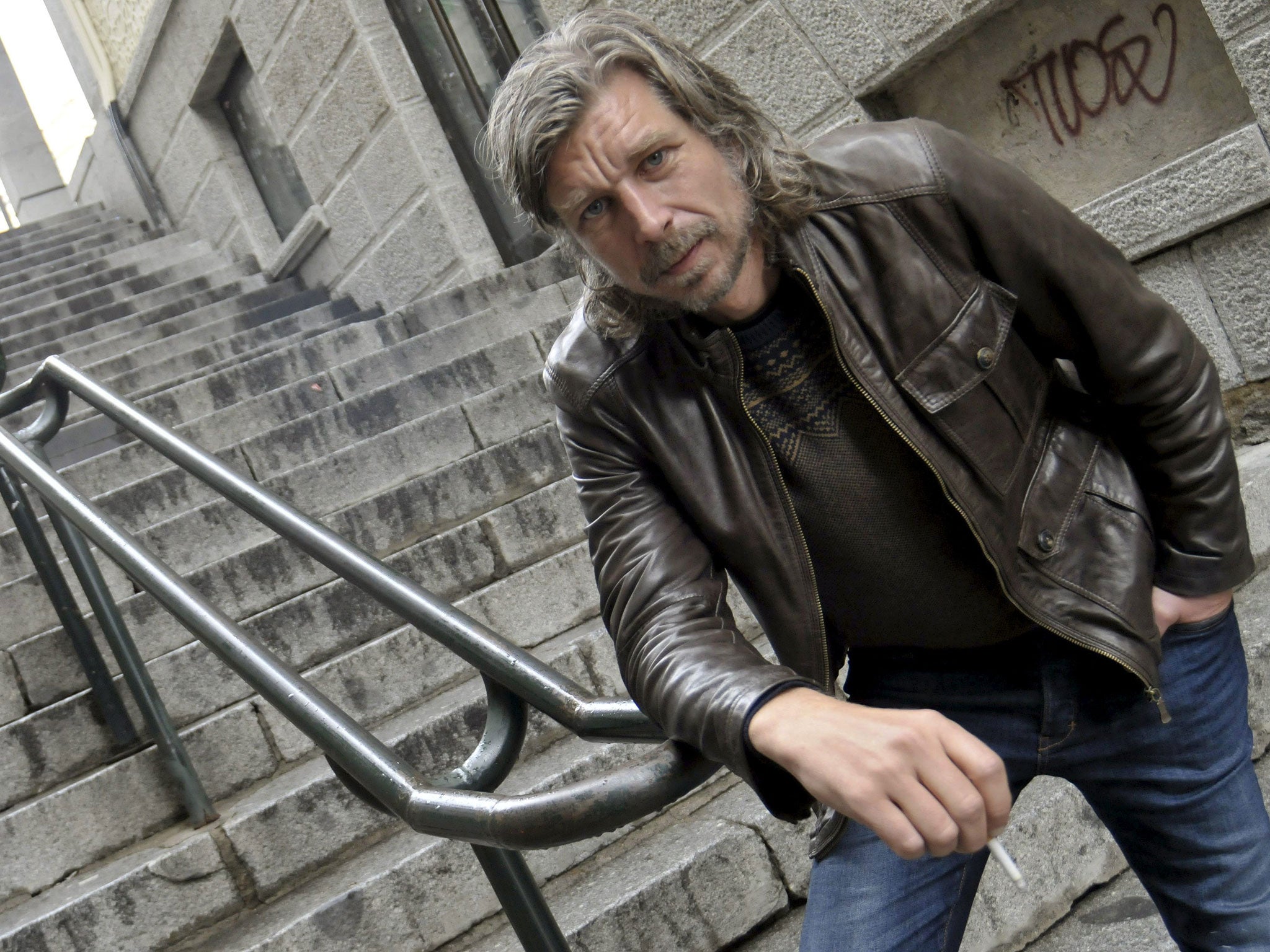Some Rain Must Fall by Karl Ove Knausgaard; trans. by Don Bartlett, book review: Return of the angry man
Karl Ove Knausgaard returns to his student days in the fifth installment of his acclaimed series. And it's as joyful to read as bingeing on a TV box set

What kind of character is Karl Ove Knausgaard? In Some Rain Must Fall, the fifth episode of My Struggle, he is, most obviously, a dead-ringer for his creator, Karl Ove Knausgaard circa 1998-2002, when he was studying writing and literature at college in Bergen.
Ambitious, emotionally volatile, bright, irritating, capricious, duplicitous and occasionally likeable, Karl Ove is stuck in various cycles of destructive and self-destructive behaviour. Miserable when he doesn't get what he wants (which is often and various), he is not greatly improved when he does. He hasn't long fallen for Tonje (his first wife, who receives Knausgaard's highest accolade of being compared to light) before writing: "I had never imagined that happiness hurt so much."
Karl Ove isn't, then, a glass-half-full-or-empty-kind-of-guy so much as a drunkenly-throw-a-glass-at-his-amazingly-loyal-brother-Yngve. He should really abandon glass, period. In another passage, which echoes scenes in both My Struggle part two (A Man in Love) and an earlier novel A Time for Everything, he cuts his face with the shards of a broken bottle in a fit of alcohol-fuelled jealousy.
In this, Karl Ove doesn't emerge as a hero, or even an anti-hero. He is, perhaps, an unhero. Or, to quote his reading of Joyce's unfinished debut, a Karl Ove Stephen Hero. Whereas classical heroes tend to be noble individuals undone by fatal flaws, Karl Ove is all flaws with occasional flashes of nobility. He is young and immature, of course, but you breathe sighs of relief when he forgives Yngve for dating Ingvild, Beatrice to Karl Ove's Dante, or persists with writing no matter how many rejections arrive in the mail.
Unsuspecting readers might well see their validity. While comparisons to Proust are fair enough, I don't remember a sentence like "Lying next to her hot naked body"in A La Recherche du Temps Perdu. Nevertheless, I raced through the 662 pages like bingeing on the most moreish TV box set. Knausgaard's prose can be crude, but far more often it is unpretentiously direct and sincere for a supposed literary author. I hope entire theses will be written about his use of "Oh", which ranges from casually dismissive ("Oh, it was nothing") to meteorologically disappointed ("Oh no. The raindrops were getting bigger…"). Most often Karl Ove's "Ohs" are simply conversational, achieving the sort of relaxed intimacy on the page that he lacks in life: "What was it? Oh, her self-awareness and insight…"
Granted, the conversation is largely about Karl Ove (his theories on soaking dishes, panic about deleting a nearly-complete essay, whistling Ghostbusters in the shower), but there is something compelling, or possibly compulsive, about his next adventures. Karl Ove knows how to create narrative tension, whether through the simmering violence of a drunken party, the claustrophobic anxiety caused by another infidelity or waiting to see whether he will read a petulant, vengeful poem in which "Cunt" is repeated 354 times.
If my fascination was prurient it was also human. Take a rare memory of unadulterated joy in which Karl Ove laughs at a movie with Tonje. "There are thousands of such moments, lost the second they occur yet still present because they are what forms a relationship, the particular way we stayed together, which was the same as everyone's, though different…" Knaussgard's achievement is to fix these moments, locate them in the mosaic of his vast personal mythology, and make you do the same with your own life. The near-banal final sentence, "That was how I left Bergen", is knowingly anti-climactic: we already know how much bigger the parts of this story are than its summary.
There were moments when I wondered who was the better comparison: Wordsworth, for the ways that nature bent to Karl Ove's mood and past selves composed and recomposed themselves in his recollection, or Harry Potter, for the readable, epic soap opera about a young student learning to wave his magic wand about. Few writers create so confidential a bond with the reader, at times uncomfortable, unwanted but also undeniable. Occasionally I fancied him an old friend. An infuriating, unstable, self-obsessed and well-read friend who outstays his welcome, admittedly. But a friend nonetheless.
Harvill Secker, £13.99. Order at £11.99 from Independent Bookshop
Join our commenting forum
Join thought-provoking conversations, follow other Independent readers and see their replies
Comments